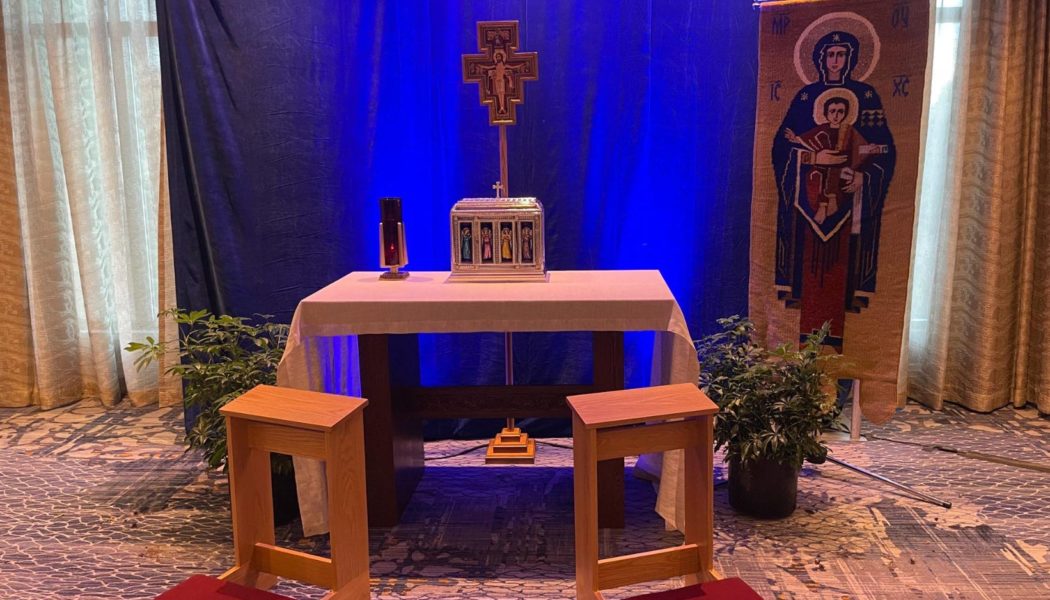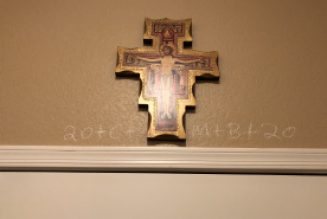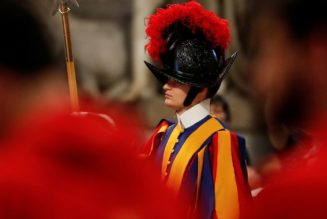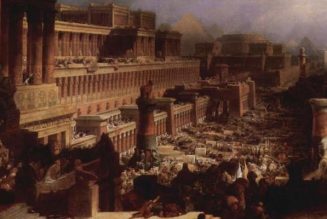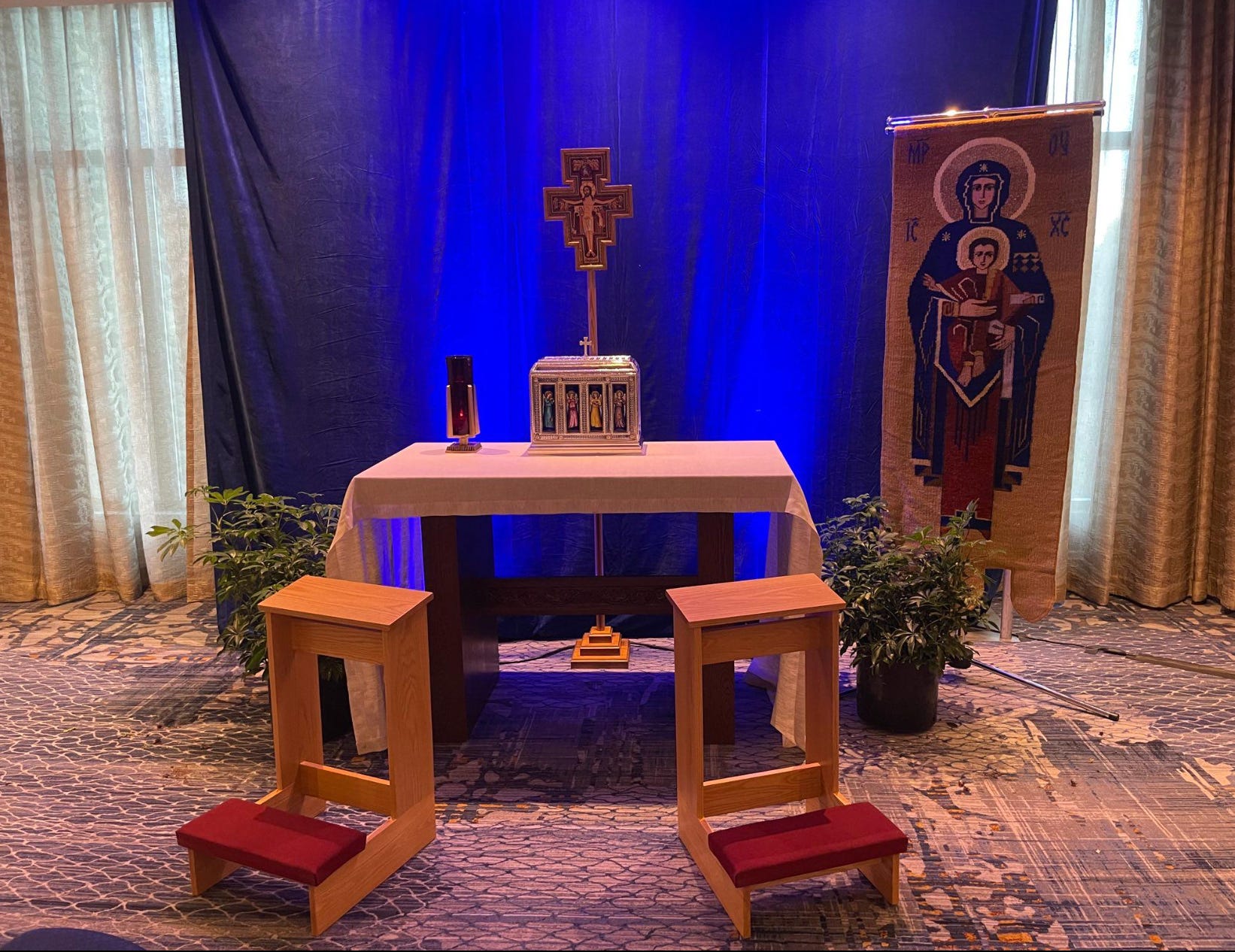
Hey everybody,
Greetings from the USCCB’s annual fall meeting in Baltimore, where the bishops will begin the public portion of their meeting today.
Before we get started, an announcement: Ed and I will be hosting a live taping of The Pillar Podcast at Todd Conner’s bar, Wednesday, Nov. 15, starting at 7 p.m — brought to you by the University of Dallas.
If you live on the east coast, or you’re here in Baltimore for the meeting, you should come. It’ll be a great time. And coincidentally, Wednesday nights are “bishops night” at Todd Conner’s, I’m told, where bishops drink free. So if you’re a bishop, you’ll have an especially great time at our live show.
—
And now let me begin with some news from the USCCB that many of you will not be too excited about.
As many of you know, the U.S. bishops’ conference began in 2012 a process for revising the Liturgy of the Hours — the prayerbook prayed several times a day by priests, religious, and many laity, whose revision began all the way back in 2012.
A fair number of you have been keeping your breviaries together with duct tape and good will, not wanting to buy new ones if a new translation is imminent. Back in 2021, we reported a USCCB official telling us that the “best case scenario” was new breviaries by Advent 2024.
Well, 2026 is the new 2024.
The bishops are set to have a few tweaking votes this week on the Liturgy of the Hours project, including Office of Readings texts for Thanksgiving and two other civic holidays, and a “proper second reading” to be used on January 6, in the years when January 6 falls before Epiphany. It’s a little technical.
But those votes are just nibbling around the edges of what’s waiting next year.
Fr. Dustin Dought told The Pillar in an interview this morning that “in May, ICEL transmitted seven books to us of texts for Liturgy of the Hours, a total of 4,000 pages, English and Latin. These were texts that were not a part of the scope of work that the bishops established in 2012, but ICEL, in their assessment, felt that those needed to be updated so that they were consistent with the new translations.”
Four thousand pages sounds like a lot.
Sure, Fr. Dought concedes. But in fairness, “it’s not continuous texts.”
“It’s long responsories, short responsories, antiphons, versicals, second readings, hagiographical introductions, introductions to the Lord’s Prayer.”
Dought said that the USCCB “didn’t anticipate” that ICEL – [the international body actually doing the translation] – would send those texts, but “the committee believes that it’s good to have those texts, so that there will be greater consistency in the breviary.”
“For the most part those were updates, but the bishops still need to review those, have an opportunity to modify those, and then the full body of bishops will vote on those [4,000 pages] in June of 2024,” Dought said
Sounds like June of 2024 is the end of the story then.
Not quite:
“The revision of the New American Bible is ongoing. And so all of the non-Scriptural texts will have been approved, but it will remain for the revision of the NAB to be completed, and then for that translation to be approved by the whole body of bishops for liturgical use.”
“Our hope is that [the NAB] would be completed next fall, and that the whole body of bishops would vote on that text for liturgical text in November 2024.”
So if your breviary is falling apart, right now, should you spend the money on a new one, or should you wait until the new translation is available?
I asked Fr. Dought.
“So, my hope is that we will be able to send four volumes of the breviary to the Holy See in December of 2024. The dicastery normally takes 12 to 18 months in their review of texts.”
After that process, of course, publishers need some time as well — Dought estimated another six or eight months after the Vatican finishes.
So, what’s the new best case scenario?
June 2026, Fr. Dought told me.
Now, listen, I know that a lot of clerical and religious readers will not be terribly happy to read all that. Perhaps they won’t be shocked either. In either case, if you need a new breviary, pray for patience.
And if you can — pray for Fr. Dustin Dought too. He’s 36 years old, he’s been working in the conference for two years, by all accounts he works very hard — and this morning, here in this newsletter, he has to be the bearer of unhappy news for a lot of his brethren.
In fact, pray for all of the USCCB’s staff, while you’re at it. They work pretty hard, mostly because they love the Church. And they need the prayers.
And, of course, I’ve got a lot more to tell you about the USCCB meeting. So keep reading.
The news
The announcement came exactly two months after The Pillar reported that senior cardinals had recommended to Pope Francis that Strickland be pressured to resign leadership of his see, following an apostolic visitation of the Tyler diocese earlier this year.
Strickland is here in Baltimore — not attending the meeting, but praying outside of it, telling The Pillar that “I’m just here to pray.”
I’ll have more to tell you about all of this, after the rest of the news.
The eight diocesan bishops lead 30% of Germany’s diocese, making their absence no small thing. Four were absent because of prior commitments, and four were absent because they were boycotting the meeting entirely.
But, wait, there’s more from that meeting.
At the committee’s kickoff meeting, the members present voted to drop a rule requiring decisions to gain support from two-thirds of the country’s bishops before being adopted.
Members of the committee voted Nov. 11 in favor of statutes establishing that resolutions can be passed with a simple two-thirds majority of members, with no distinction between .
This seems to suggest more tumult for the Church in Germany in the weeks to come. Read about it here.
The prelate, Bishop Rosario Gisana, has been accused of failing to respond to a report of sexual abuse by a catechist in his diocese. He has also been accused of protecting a priest in the diocese who is on trial for child pornography and sexual violence against minors.
But Pope Francis called the bishop a “just man” on Saturday, adding that Gisana “was persecuted [and] slandered, yet he stood firm.”
The pope’s characterization is going to continue to attract attention, with those remarks drawing comparisons to the pope’s treatment of the disgraced Bishop Juan Barros, or Fr. Marko Rupnik.
—
A Nigerian priest who was kidnapped this month by Fulani militants told The Pillar the harrowing story of his capture — and the remarkable details of his rescue, which came through a Fulani woman who helped him get free.
—
Finally, in the news, here’s something very, very cool.
Mincione hasn’t spoken with the media in years. Until last month, when he sat down with Ed for several hours, and supplied him with more than 100 pages of documents related to his case.
Ed has written a very lengthy profile of the man. It’s one of the best things Ed has written, actually.
And listen — I know that a lot of you don’t follow the Vatican finance story, because you find its serpentine twists impossible to follow. This isn’t that. This story is the single most readable account of the Vatican finance mess I have ever read. That’s no bull — really, even if you don’t know anything about the Vatican finance stuff, you’ll appreciate this story.
Charm City
So when you read The Pillar, you do it because you want the full story. You want to know what’s really going on. And when we come to USCCB meetings, it’s not just to write up the speeches from the important guys up on the dais. We’ll do some of that, but you could actually get speech summaries just about anywhere.
You read The Pillar because when we come to USCCB meetings, we talk to everybody — bishops, priests, staffers, significant others, and conference consultants. We try to get the full picture of what’s happening, especially behind closed doors.
And from where I sit, the story of this meeting — for many bishops — is their now-deposed brother, Bishop Joseph Strickland, formerly of Tyler.
Strickland was “relieved” of his assignment on Saturday, after an apostolic visitation into his leadership of the diocese, and after quite some time in which the bishop has been a very vocal critic of Pope Francis — even saying in May on twitter.com that “it is time for me to say that I reject [the pope’s] program of undermining the Deposit of Faith.”
Strickland is here in Baltimore this week. He’s not attending the meeting, but praying outside, and holding some other meetings. He told me yesterday that he is “just here to pray,” and that he came to Baltimore because he “already had the plane ticket.”
But inside the conference hotel, a lot of bishops are talking about Strickland. And few sound pleased with how his removal was effected.
Several bishops — even some who are not fans of Strickland — have told me that they’re concerned about the process by which Strickland was removed.
They argue that if Strickland was negligent in office — if his leadership caused harm — he should have been afforded a transparent, clear way of proceeding which would ensure his right of defense. That was the point of the process Pope Francis established in 2016, they say.
Of course, the pope can remove Strickland by any process he wants — he has full, ordinary, immediate, universal power in the Church. But he established a process for removing bishops precisely to afford them justice — and there’s a contingent of U.S. bishops very concerned about the fact that the pope didn’t use that process for Strickland, regardless of the outcome.
Some bishops have also acknowledged that it is a canonical crime to “incite… animosity against the Apostolic See,” and that they think Strickland might have been accused of precisely that. But if that’s the reason for the bishop’s removal, they say, the Vatican should say it.
Indeed, numerous bishops — again, even people who are not Strickland fans — say that however Francis removed Strickland, the Vatican should have been considerably more transparent about the reasons for their decision.
They say that if Strickland was an incompetent diocesan administrator, the Vatican should say that. If this was about his regular and public commentary on the pope, the Vatican should say that too
These bishops say that in the absence of information, Strickland’s removal seems like an arbitrary and political decision, especially when bishops in other countries seem to go undisciplined even when they openly flout Catholic doctrine and discipline, or when the pope praises bishops accused of covering up abuse.
Indeed, the decision looks political, many bishops concede, and that’s caused consternation for a lot of practicing Catholics.
And most bishops also realize that if it was the Vatican’s intent to silence Strickland, this decision will not have that effect. They project that the bishop, unmoored from a diocese, will grow more popular, and some express concern about whether he’ll follow the increasingly erratic path of Archbishop Carlo Vigano.
But they also say the Vatican should have given them more information.
“Everything I know about Joe Strickland’s case,” one bishop told me, “I read in The Pillar.”
—
Finally, bishops will vote this morning for a new conference secretary, and to elect chairmen for six standing committees.
Here’s who I think will win. This is not necessarily who I would vote for, just who I think will win.
Secretary
Archbishop Paul Coakley of Oklahoma City
Archbishop Alexander Sample of Portland in Oregon
Who I think will win: Coakley
How confident I am: pretty confident.
Committee on Catholic education
Bishop James Conley of Lincoln
Bishop David O’Connell of Trenton
Who I think will will win: Toss-up
How confident I am: I mean, I’m punting. So obviously I’m not sure.
Committee on communications
Archbishop Christopher Coyne of coadjutor of Hartford
Bishop William Byrne of Springfield in Massachusetts
Who I think will win: Coyne
How confident I am: Not very
Committee on cultural diversity in the Church
Bishop Earl Fernandes of Columbus
Bishop Robert Brennan of Brooklyn
Who I think will win: Fernandes
How confident I am: Very
Committee on doctrine
Bishop John Doerfler of Marquette
Bishop James Massa of Brooklyn
Who I think will win: Massa
How confident I am: Not very
Committee on national collections
Bishop Shawn McKnight of Jefferson City
Bishop Daniel Mueggenborg of Reno
Who I think will win: McKnight
How confident I am: It could be close
Committee on pro-life activities
Archbishop Salvatore Cordileone of San Francisco
Bishop Daniel Thomas of Toledo
Who I think will win: Cordileone
How confident I am: pretty confident.
We’ll discuss all this, and more, during a live taping of The Pillar Podcast at Todd Conner’s bar, Wednesday, Nov. 15, starting at 7 p.m — brought to you by the University of Dallas.
Be there.
Finally, I’ll be live-tweeting the public sessions of the USCCB meeting, as is my custom. You can find me on twitter.com at @jdflynn
Please pray for us, and please be assured of our prayers.
We need it.
Yours in Christ,
JD Flynn
editor-in-chief
The Pillar
Comments 36
Services Marketplace – Listings, Bookings & Reviews
